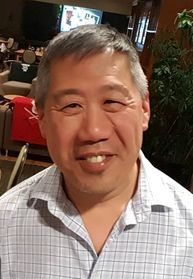Jeff Chang, Ph.D., R.Psych.
Associate Professor
Graduate Centre for Applied Psychology
Athabasca University
Calgary, AB, Canada
and
Family Therapist/Clinical Supervisor
The Family Therapy Centre
Calgary, AB, Canada
Email:jeffc@athabascau.ca
Phone: 403-686-0299; 866-901-7647
Web: drjeffchang.webs.com
Like many therapists, I came to social constructionist ideas through the back door, so to speak. I had the good fortune to have lived in Calgary in the 1980s and 90s, when Karl Tomm was sponsoring interesting people like Michael White, David Epston, Tom Andersen, and the Fifth Province team from Dublin. I was already well-trained in solution-focused therapy, so the idea that how we speak about clinical problems — in terms of content (e.g., asking about what was happening when things are better, a la solution-focused and narrative approaches), in terms of process (emphasizing client preferences, valuing local knowledge, and being transparent), and in terms of the big picture (discourse) – was not new, and provided an entry point into social constructionist thinking. I became quite good at the techniques of linguistically constructing therapeutic realities before I understood how discursive processes shape the contexts in which we live. For me, the doing preceded the understanding.
In private practice as a psychologist, I’ve done a great deal of work in the family law arena that would look like traditional, modernist psychology. Although I felt like I was “dancing with the devil” at times, it was helpful for me to intentionally position myself in relation to discursively produced ideas such as psychopathology, expertise (as in “expert witness”), dispute resolution, child protection and child abuse, risk factors, attachment and attachment disorder, and so on. Occasionally, I had a platform (in the witness box, or presenting in the law school classes or legal education conferences) from which to nudge listeners to stand back from the discourses in which they were immersed.
As a program manager and clinical supervisor, I’ve used collaborative principles based on appreciative inquiry to learn about and implement the desires of stakeholders and to manage staff. I’ve participated in the development of several school-based mental health programs, services to parents under the scrutiny of child protective services, and employee assistance programs. I’ve developed a collaborative meta-framework for clinical supervision that I’ve presented internationally.
Finally, as a counselling professor teaching in an on-line program, I have sought to operationalize my social constructionist approach to knowledge in both the content and process of teaching and course development. The courses I have written are interspersed with invitations to deconstruct discourses and cultural practices in the discipline of counseling. I write learning activities that aim to guide students in the co-construction of knowledge.
Currently, I am publishing in the areas of collaborative approaches to therapy and service delivery (e.g., school-based services, narrative therapy, solution-focused therapy, and reflecting teams), psychological services in high-conflict divorce, and collaborative approaches to clinical supervision.

